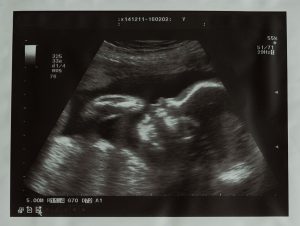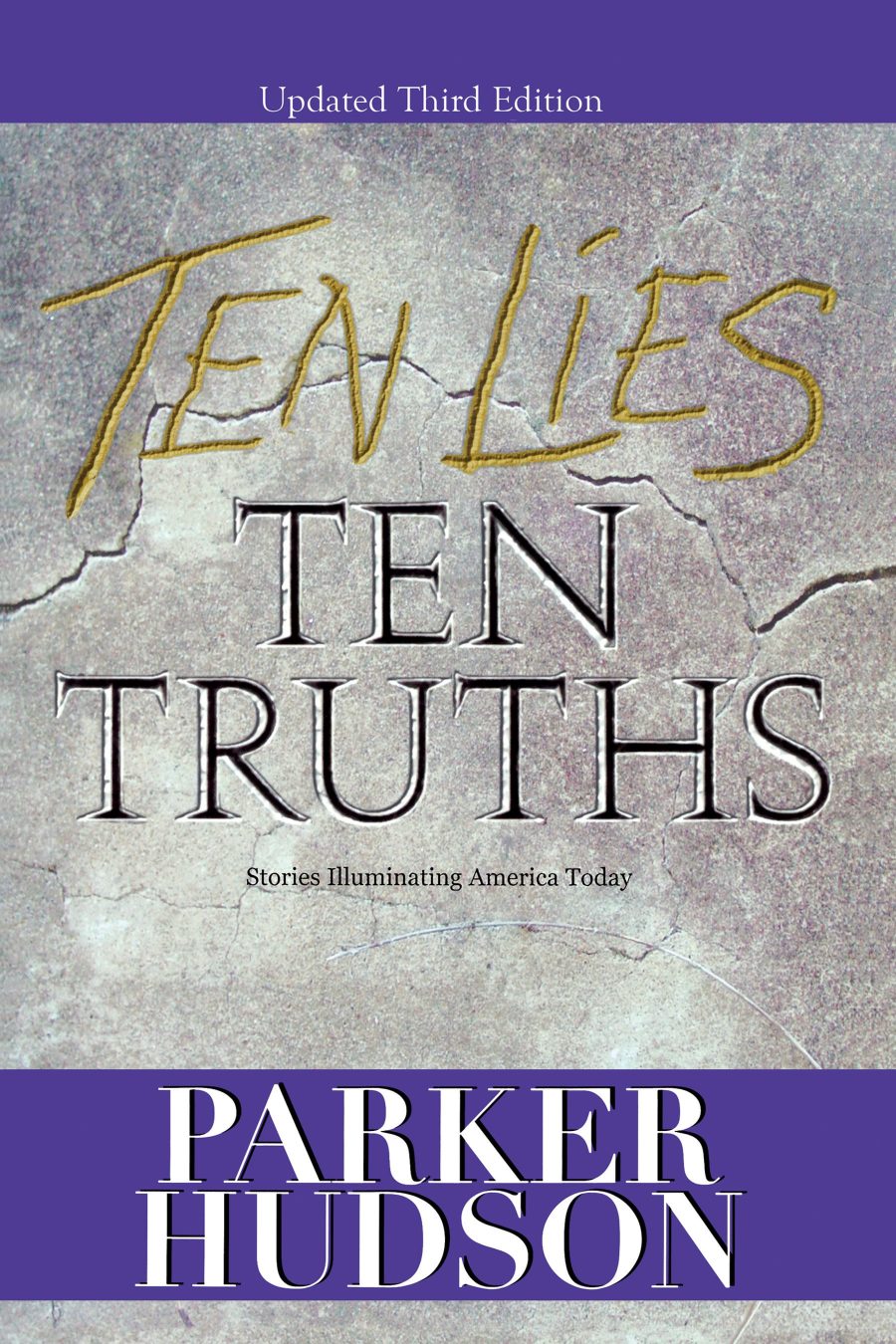Bill Gates calls Steven Pinker’s new book, Enlightenment Now: The Case for Reason, Science, Humanism, and Progress, “My new favorite book of all time.”
Pinker’s work is a 453 page, incredibly well researched tour de force on every aspect of life across the globe since The Enlightenment.
And almost every page explores the incomparable progress we humans have made during the last 250 years to beat back death, extend life, multiply productivity, equalize rights, increase leisure, and add to happiness.
Pinker’s book is a detailed reminder of how blessed we are to live at this time in human history. As a reference for those facts, figures, insights and reminders, I recommend this book.
But I have two arguments with it. First, Pinker describes all of this accomplishment as the triumph of science, reason, and humanism over faith, religion and belief. Pinker believes that the latter, with few exceptions, have held us back and added to or extended our misery. He cannot imagine that faith and reason can co-exist in a joint approach to solving the “big” questions of who we are, what is our purpose, and where we are going.
As a reasonably intelligent, hopefully rational embracer of the scientific method, who also happens to be an Old Earth creationist evangelical Christian, I should have a bit to say on the faith vs. reason subject, but I want to save it for a later post.
Here I want to address a more limited but very enlightening (no pun) subject from squarely within the four corners of Pinker’s own recommended world: a public square in which reason, science and humanism are the only arbiters that count.
Consider the following (bold emphases added):
Pinker calls the Declaration of Independence, with its emphasis on Life, Liberty and the Pursuit of Happiness, “the most famous product of the Enlightenment.” (p 12)
“The struggle to stay alive is the primal urge of animate beings, and humans deploy their ingenuity and conscious resolve to stave off death as long as possible…A long life is the ultimate blessing.” (p 53)
“The uncanny assemblage of scientific, institutional, legal and social forces all pushing to strip government of its power to kill makes it seem as if there really is a mysterious arc bending toward justice. More prosaically, we are seeing a moral principle—Life is sacred, so killing is onerous—become distributed across a wide range of actors and institutions that have to cooperate to make the death penalty possible.”(p. 213)

“[Humanism] is one of a family of principles that have sought a secular foundation for morality in impartiality—in the realization that there’s nothing magic about the pronouns I and me that could justify privileging my interests over yours or anyone else’s. If I object to being raped, maimed, starved or killed, I can’t very well rape, maim, starve or kill you.” (p. 412)
“It’s an inescapable feature of the human condition that we’re all better off if we help each other and refrain from hurting each other.” (p.429)
Having read those words from Steven Pinker, consider that in all of these 453 pages he never considers abortion, or even mentions
How can this be? How can a book so full of facts, figures, trends and good news turn a blind eye to abortion? It’s too big a killer for Pinker to have just missed it. He must have left it out intentionally.

I can only speculate that his Progressive beliefs have trumped in this one case his call to humanism, reason and science. On this issue he abandons his own measures of progress to bow to the god of abortion in the Progressive Manifesto.
Notice how patently irrational is the result: It goes against Reason, Science and Humanism to kill children, unless you are killing your own baby, and then it’s acceptable.
So, not from my faith, but from Pinker’s own words, if I add killing unborn babies to the list of actions which any enlightened person should detest and want to stop, then limiting abortion fits tightly within the other calamities which have been reduced by reason,
By Pinker’s own rules, he should oppose abortion and speak against it. Perhaps he does. But he missed 453 opportunities in this book. And Pinker’s ignoring of abortion as a huge moral issue also sheds light on another of his lapses: his explicitly stated detesting of Donald Trump (over 57 references in the book) and, in particular, of anyone who voted for him.
Any reader of this space knows how I agonized over the 2016 election—you can go back and read exactly what I wrote at the time, and then a year later, about policy vs. personality with both of the imperfect candidates. I finally voted for Trump explicitly because I did the calculation that many fewer babies were likely to be killed with him as President, and selecting future Supreme Court justices, than if Clinton were elected. That was it. Given the choice for “least worst”, that is how I decided.
Pinker, because either he doesn’t get this issue at all, or again consciously chooses to ignore it, writes that Evangelicals chose Trump to increase their churches’ political activism. “Donald Trump won the votes of 81 percent of white Evangelical and born-again Christians, a higher proportion than of any other demographic. In large part he earned their votes by promising to repeal a law which prohibits tax-exempt charities (including churches) from engaging in political activism. Christian virtue was trumped by political muscle.” (p. 433).

So I am all in for reason, science, humanism and progress. I understand how lucky (blessed?) we are to be living three centuries after the Scientific Revolution kicked off the Age of Reason, the Enlightenment, and the Industrial Revolution, given all of the incredible advances that Pinker so ably inventories.
My point here is that the evil of abortion should have been addressed head on in a study about overcoming death and protecting the innocent—worthy goals for both secular and religious activism. And it is addressing that pair—faith combined with reason—to which I hope to return in a later post.



Parker, thank you for your blog and book review. I, too, voted for Trump. None of us is a “perfect vessel”. I think of Trump as someone who has changed many of his beliefs from his days as a Democrat. Clinton, contrastingly, shows no signs of change, unless it is to move further left. Both Trump and Clinton are imperfect, as are all of us. But, Trump, between the choice of him or her, was no contest to me as obviously preferable.
I strongly agree that the barbaric practice of Abortion is in fact “baby-killing”. That is a belief held in common by most of the world’s great religions. Systematically taking the lives of known innocents is simply wrong. Sadly, it is a practice that Clinton enthusiastically embraces with her Culture of Death. Easy decision for me.
The essence of faith is the evidence of things unseen and unheard.
Our nation, this weekend, acknowledges the ultimate sacrifice of our fellow citizens for this still alive but thoroughly wounded nation over the years 2009-2016.
It was founded on the truths revealed in our Declaration and Constitution gleaned from our Judeo-Christian heritage. Long may it endure the vicissitudes thrust upon it by the forces of evil. Long may it turn its back on the barbarity of killing babies to overcome its National Shame in the false choice of Abortion.
So, your observation is more than quite perceptive but also sharply accurate.
Parker-
I have always respected your writing skills and think many of your positions are well reasoned. But don’t you think it is time to stop calling all abortions “baby killings”? Isn’t it just possible that the soul is not created at the moment of conception? I think it is time for a reassessment.
And I do think it inexcusable that a man with your high moral bearing could still be flying a flag for Donald Trump whose behavior embodies exactly what you don’t want to find in the deeds and thoughts of yourself or the people around you.
Bill, thank you for your thoughts. On conception and the soul, I’m not sure, but I’d rather err on the side of life. Luke tells us that when Elizabeth heard her Cousin Mary’s voice, John the Baptist leapt in her womb. And on the complex issue of our President, did you follow the two links in the post? All the best.
I ordered the book upon reading Bill Gates email recommending the book as “My new favorite book of all time” and also watched interviews of Mr. Pinker. The NYTimes called him “One of the top one hundred influential people in the world. It is true that since 1990 about 1.1 billion people have come out of extreme poverty worldwide, but the points that Parker has discussed in this post is extremely valid and regretfully ignored in this book. I am printing MR. Hudson’s post and leave it within the pages of my copy of the book as a reminder of the ignored abortion data, reason for voting for President Trump, and how true faith in Christ can lead the world to true peace and joy of life on this earth and beyond.
Parker – I heard this on Christian radio a while back. When a teacher asked her class of small children what evil is…one little boy said “it’s ‘live’ spelled backwards”. That’s true and it’s Biblical. It’s also consistent with Mr. Pinker’s book. Based upon that, is it possible that preventing life via synthetic birth control is also a form of death? I believe it is in most cases. As a person conceived in a marital rape, Jeremiah 1:5 gives me great comfort, “Before I formed you in the womb, I knew you…”. Mark